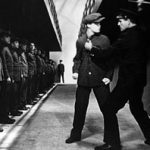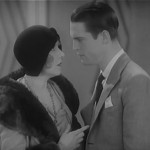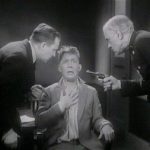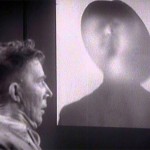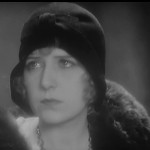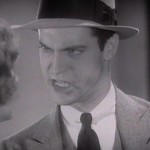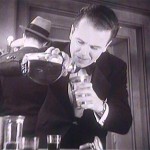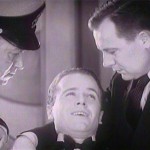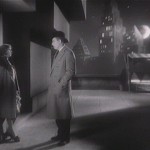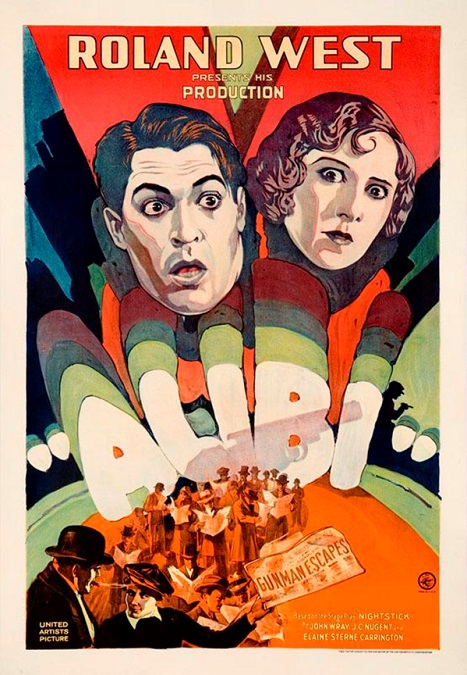

Alibi – 1928 / 1929
This film was… confusing. The plot wasn’t terribly deep. It wasn’t overly sentimental or dramatic. It didn’t have any comedic content, and the acting was a little off, though I have learned that there was a reason for that. But it did have a few redeeming qualities. Alibi seemed to be trying too hard to be something it wasn’t.
OK, first let’s look at the plot. A man is released from jail. Suddenly he is at a table in a nightclub with two people who are introducing him to a beautiful young girl. They dance and enjoy each other’s company. Already we have problems. At this point there is no way to know who the two people are, who the beautiful young girl is, or why they are all sitting together at the nightclub with the ex-con. For that matter, we don’t know why he was in jail, or even his name. It just started the film off as confusing, making it a challenge to decipher who anyone was or what their role in the plot was.
The jail-bird was prohibition gangster Chick Williams, played by Chester Morris. The young woman was Joan Manning, played by Eleanor Griffith. The two people who introduced them were fellow gangsters Buck and Daisy, played by Harry Stubbs and Mae Busch.
The character of Joan seemed to be all over the place. She knows that they are all gangsters, but she naively believes that they are good people who are trying to be respectable. She even goes so far as to marry Chick and plans to run away with him. Oh, and she happens to be the police chief’s daughter. But then she lies to her new husband. But she really loves him. But then she gives him away to the “coppers!” Pick a side, Joan!
The script was a little trite and had the actors using language that a modern audience might not understand, making everything seem very dated. The term “copper” was thrown around like an insult. The characters were written as stereotypes and were pretty one dimensional. The gangsters were all liars and cheats, the young girl was sweet and innocent, and the police were all clever and honest.
But once I learned who everyone was, and settled into the plot, it became easier and more enjoyable to watch. The character of the undercover cop Danny McGann, played by Regis Toomey, was particularly interesting. When dealing with his police co-workers, he was straight-laced and coherent. But when dealing with the mob, he acted the part of an over-the-top sloppy drunk.
But I have to mention his death scene. It was incredibly over-done and melodramatic. It took him forever to die after getting shot in the back by Chick. He is lying in a fellow police man’s arms and croaking things like, “It’s getting hard to see,” and “Goodbye, Tommy!” They actually started playing the Hawaiian ukuleles in the background as the sun set on Danny’s life.
However, after doing a little research, I have discovered why all of the acting was so over-done and, dare I say, a bit hammy. This movie was made right at the time when silent films were giving way to the talkies. There were several alternate scenes that were filmed so that the film could be released in both formats. The acting in silent films has to be done that way to display emotions without the use of spoken language. But unfortunately, that style of acting did not translate very well into a speaking movie.
Aside from that, the film was passable. The director, Roland West, did some interesting things with the camera, using unique angles and putting the camera on a rolling track for a few smooth motion shots. Add to that a few special effects that were fairly innovative for the time, and you have some minor technical achievements. But for my tastes, it didn’t hold up well, especially for a modern audience.
